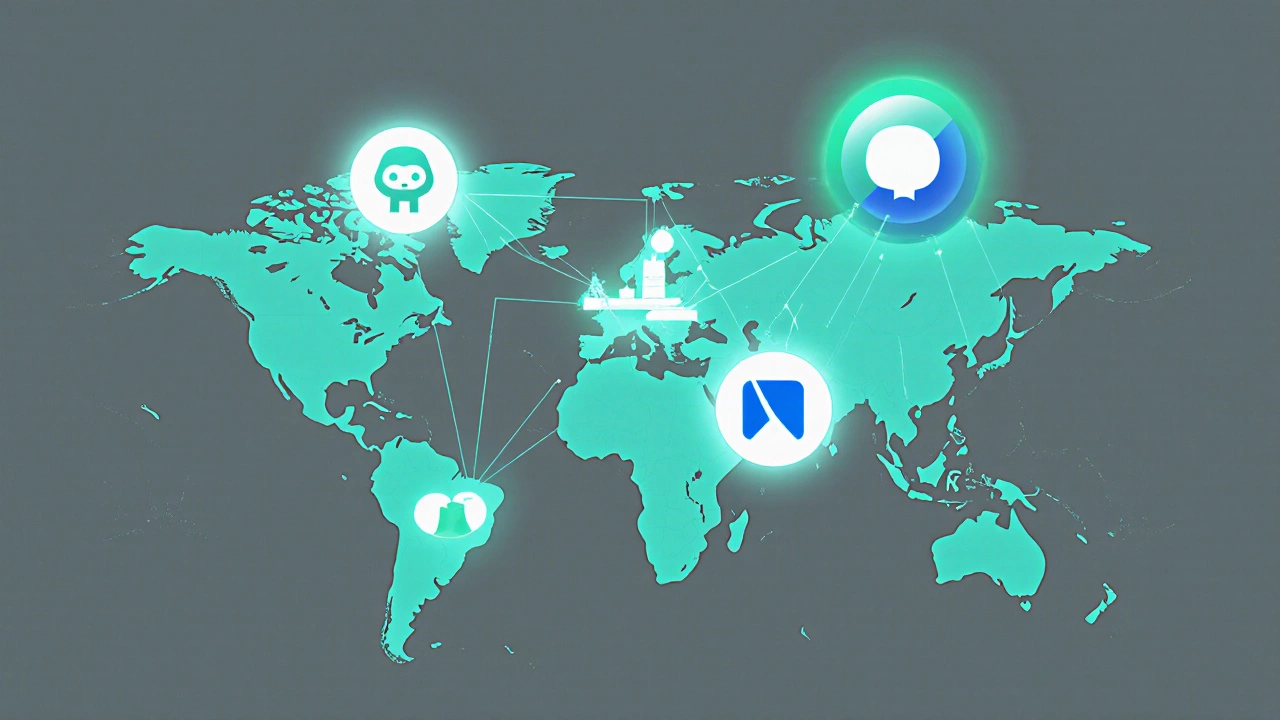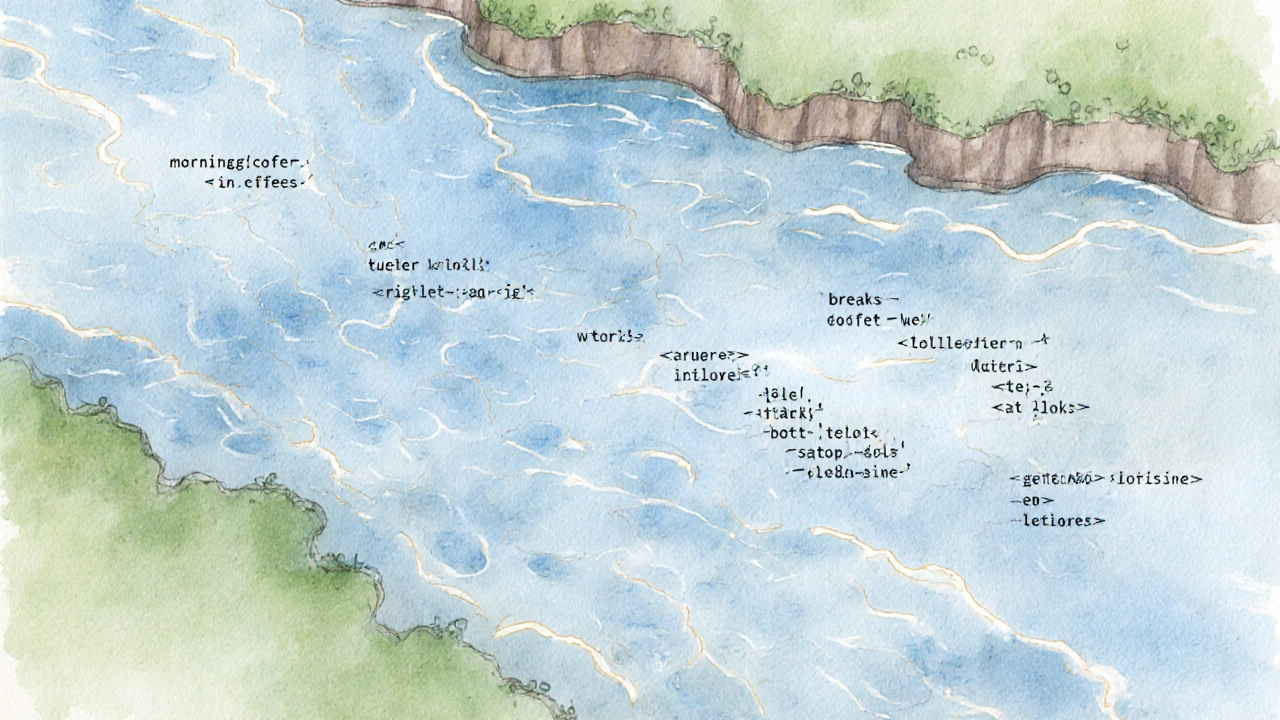Remote Web Developer Salary Calculator
More than 78% of web developers in 2025 work remotely at least part of the time. That’s not a guess - it’s from the latest Stack Overflow Developer Survey. If you’re wondering whether web development is a job you can do from your couch, your kitchen table, or a co-working space in Dublin, the answer is yes. But it’s not just about location. It’s about how the work actually gets done, what tools you need, and whether your personality fits the rhythm of remote life.
Why Web Developers Can Work From Home
Web development is one of the few tech jobs that doesn’t require physical hardware you can’t carry. You don’t need a lab, a factory floor, or a server room you can’t access. All you need is a laptop, a stable internet connection, and a code editor. That’s it. The entire workflow - writing code, testing on browsers, collaborating with designers, deploying to servers - happens online.
Companies use tools like GitHub, Slack, Zoom, and Notion to manage projects. A developer in Lisbon can review code pushed by someone in Manila, and a designer in Toronto can leave feedback on a Figma file while the developer in Berlin implements it. Time zones don’t break the workflow - they just shift the meeting times.
Unlike electricians or plumbers, web developers don’t show up to fix a broken pipe. They fix bugs in code. And bugs don’t care where you are when you fix them.
What a Typical Remote Day Looks Like
There’s no single routine, but here’s how it usually plays out for most remote web developers in 2025:
- Start the day with a quick stand-up call - 10 minutes with the team to share what you’re working on and if you’re stuck.
- Block out 2-4 hours for deep work: writing JavaScript, debugging CSS, or building a React component. No meetings. No emails.
- Take a walk or make coffee. Remote work isn’t about sitting all day - it’s about moving between focus and reset.
- Handle feedback from clients or teammates. Maybe you’re reviewing a pull request or fixing a layout issue on a Shopify site.
- End the day by documenting what you did, updating Jira tickets, and closing out tasks.
Some developers work 9 to 5. Others start at 7 a.m. because they’re in a different time zone. Some work late at night because that’s when their brain clicks. The structure is flexible - but the output still has to be reliable.
Tools That Make Remote Web Development Possible
You can’t do this job remotely without the right tools. Here’s what most professionals use:
- Code editors: VS Code is the standard. It’s free, fast, and has extensions for everything - from React to Python to Docker.
- Version control: GitHub or GitLab. Every line of code is tracked, reviewed, and backed up.
- Communication: Slack for quick chats, Discord for dev teams, and Zoom for design reviews.
- Project management: Notion, Jira, or Trello. Tasks are broken down, assigned, and tracked.
- Deployment: Vercel, Netlify, or AWS. One click and your site goes live.
These aren’t optional extras. They’re the infrastructure that replaces the office. Without them, remote work falls apart.

Who Struggles With Remote Web Development
It’s not for everyone. Some people thrive in silence. Others need the buzz of a team around them.
If you get distracted easily, working from home can feel like a trap. The fridge is right there. The laundry pile is calling. The TV is on. Without structure, productivity drops fast.
Also, if you’re new to coding and still learning, remote work can be isolating. You can’t just turn to the person next to you and ask, “Hey, why is this React hook breaking?” Online forums help, but they’re not the same as a quick shoulder tap.
And if you’re working for a company that doesn’t trust remote workers - maybe they still expect you to log in at 9 a.m. sharp and stay online all day - you’ll burn out. Remote work isn’t about being available 24/7. It’s about delivering results.
How to Succeed as a Remote Web Developer
If you want to make this work, here’s what actually helps:
- Set boundaries. Define your work hours. Turn off notifications after 6 p.m. Tell your housemates you’re in “focus mode.”
- Create a dedicated space. Even if it’s just a corner of your bedroom with a desk and a good chair. Your brain needs to associate that spot with work.
- Over-communicate. In an office, people see you working. Remote? You have to show it. Update your status. Share progress. Ask for feedback.
- Build routines. Start with coffee. End with a walk. Schedule breaks. Don’t let the day blur into one long screen session.
- Invest in your setup. A good keyboard, a second monitor, noise-canceling headphones - these aren’t luxuries. They’re tools that keep you sane.
Remote work isn’t magic. It’s a skill. And like any skill, it gets better with practice.

Freelancers vs. Full-Time Remote Developers
There’s a big difference between working remotely for a company and being a freelance web developer.
If you’re employed by a tech firm, you get benefits: health insurance, paid time off, a steady paycheck. But you also have to follow their rules - their deadlines, their tools, their meeting schedules.
Freelancers have freedom. You pick your clients, your rates, your hours. But you also handle everything: invoicing, taxes, finding new work, dealing with late payers. One client cancels a project? Your income drops overnight.
Many developers start remote full-time, then transition to freelancing after 2-3 years. They learn the tools, build a portfolio, and realize they like being their own boss. But it’s not a shortcut to easy money. It’s a shift in responsibility.
What’s Changing in 2025
Remote web development isn’t going away. It’s getting smarter.
AI tools now help with code generation, testing, and even debugging. GitHub Copilot isn’t just a novelty - it’s saving developers hours a week. That means you can deliver more in less time, even if you’re working part-time from home.
Companies are also getting better at managing remote teams. They’re offering stipends for home office setups. They’re holding quarterly in-person meetups to rebuild connection. They’re measuring output, not hours.
And with more developers in Eastern Europe, Southeast Asia, and Latin America joining global teams, time zone flexibility isn’t a perk - it’s the norm.
Is Remote Web Development Right for You?
Ask yourself these questions:
- Do you enjoy solving problems alone, or do you need constant feedback?
- Can you stay focused without someone watching over you?
- Are you okay with managing your own schedule - and your own motivation?
- Do you want the freedom to travel, or do you need the structure of an office?
If you answered yes to most of these, remote web development could be a great fit. If you’re unsure, try it part-time. Take a freelance gig. Work from home one day a week. See how it feels.
There’s no right or wrong. Only what works for you.
Can web developers work from home full-time?
Yes, many web developers work full-time remotely. Companies across the U.S., Europe, and Asia hire remote developers for long-term roles. The key is having reliable communication skills, a strong portfolio, and the discipline to manage your own time.
Do you need a degree to work remotely as a web developer?
No. Most remote hiring managers care more about your code, your GitHub profile, and your ability to solve real problems than your diploma. Bootcamps, online courses, and personal projects are enough to land a job - if you can demonstrate skill and consistency.
How much do remote web developers earn in 2025?
Salaries vary by location and experience. In the U.S., entry-level remote developers earn $65,000-$85,000. Mid-level developers make $90,000-$120,000. Senior developers or specialists in React, Node.js, or TypeScript can earn $130,000+. Freelancers charge $30-$100/hour depending on skill and client.
Is remote web development lonely?
It can be, especially if you’re isolated. But many remote developers join online communities, attend virtual meetups, or co-work in shared spaces. Some companies host annual retreats. Building connections takes effort, but it’s possible - and many find the trade-off worth it.
What if I’m not good at self-discipline?
Start small. Try working remotely one day a week. Use timers like the Pomodoro technique. Set clear goals for each session. Gradually build your focus muscle. Many developers who struggled at first became some of the most productive remote workers once they found their rhythm.
